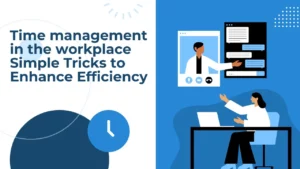Introduction
Do you ever feel that you tend to question your competence or feel that you are not good enough at work even though others may feel differently? Do you feel you don’t deserve praise and recognition at work? That is imposter syndrome (IPS). It is that feeling of questioning yourself and feeling inadequate despite accomplishing in the past.
Imposter syndrome
IPS is when individuals tend to question their own abilities and have continuous fear of being perceived as fake even though their performance suggests otherwise. (Friedman, 2023). It can feel like being in a crowded room with extremely confident people while you question if you truly belong. It impacts diverse populations. It is very commonly seen in settings such as education and workplace. Individuals with IPS tend to have a negative view of self and find it very difficult to accept praise or acknowledgement. Individuals may also seek approval from others to feel reassured about themselves and to feel a sense of belongingness. IPS can stem from trying too hard to be perfect or from having a family that was too hard on you when you were young. It can also come from working in a place where people are always comparing and competing. It can have a significant impact on various areas of a person’s life such as work, relationships and personal well-being.
Imposter Syndrome at Work
In the workplace it can manifest in the following ways:
- Constant fear of failure.
- Reduced sense of belongingness.
- Feeling unworthy for the position or accomplishments
- Fear being exposed as incompetent by others
- Attributing any form of success to luck (Silver, 2022).
- Downplaying achievements
- Avoiding seeking promotions or challenging assignments. This can hinder career growth, reduce confidence, productivity and lead to burnout.
- Reluctance to share ideas at work due to reduced confidence in oneself.
- Overworking oneself to make up for feeling like one is not good enough.
- Difficulty forming professional relationships.
- Success is not experienced positively due to the fear that one’s fraudulence would come to light.
Despite how common IPS in the workplace is, it is often overlooked. Many individuals may not even realize that others may also be having a similar experience. This makes it difficult to seek support and help which further increases the feeling of inadequacy.
Symptoms of Imposter Syndrome at Work
Here are some common signs to look out for if you are suffering from IPS at work:
- Persistent self-doubt about one’s competence despite external validation or reassurance.
- Comparing oneself unfavorably to other colleagues
- Setting excessively high standards for oneself at work.
- Compensating for self-doubt by overpreparing for tasks. Individuals may excessively check if they have done a task correctly.
- Feeling like an outsider in one’s organization and being reluctant to try new challenges.
- Undervaluing one’s intelligence, skills and talents (Huecker et al., 2023).
- Engaging in self-criticism and negative self-talk which focus on one’s weaknesses rather than strengths. These feelings can create a cycle of a feeling of not being good enough and anxiety that impacts one’s performance at work, confidence and overall well-being.
- Individuals may experience low mood, reduced pleasure in carrying out tasks, changes in appetite and reduced self-esteem.
5 Tips to Deal with Imposter Syndrome at Work

While experiencing IPS is commonly experienced at a workplace, here are 5 effective ways to combat it and regain confidence in your abilities:
- Differentiate Between Feelings and Facts: challenge negative thoughts by distinguishing between feelings of inadequacy and evidence of actual accomplishments. Reflect on everything you have succeeded in the past, including positive feedback from colleagues.
- Nobody is Perfect: Understand that nobody is perfect and that perfectionism is unattainable. Instead, it is important to focus on what one can control rather than flawless outcomes. You could engage in deep breathing or meditation to bring yourself back to the present moment and reduce anxiety.
- Challenging Situation: Practice visualising successful outcomes in challenging situations. This helps to boost confidence and reduce performance-related stress.
- Perspective-Changing: Change your perspective by viewing failures as opportunities for growth and learning rather than as reflections of incompetence.
- Self Care: Treating yourself with kindness and acknowledging that everyone makes mistakes and therefore that isn’t a sign of failure. Everyone experiences feelings of self-doubt from time to time and that is alright.
Conclusion
IPS at work is a prevalent issue. It can have a significant impact on how one views oneself and thereby causes distress on a day-to-day basis. It not only hampers professional growth but also affects one’s mental health and interpersonal relationships within the work place. It is however, important to remind yourself that you are not alone as many people experience it. By working on negative thoughts, focusing on progress, visualizing success, changing your perspective and practicing self-compassion, one can effectively cope with IPS and thrive in one’s professional environment. Creating a work environment where people feel supported, where they can talk openly and get helpful feedback, can help fight IPS. Remember, overcoming IPS takes time, and it’s fine to ask for support when you need it. With patience, self-awareness, and support, you can overcome IPS and realize your full potential at work.
References
Friedman, Jack, “The Ways I’m a Fraud: Essays on Imposter Syndrome in Identity” (2023). Pitzer Senior Theses. 142. https://scholarship.claremont.edu/pitzer_theses/142
Huecker, M. R., Shreffler, J., McKeny, P. T., & Davis, D. (2023, July 31). Imposter Phenomenon. PubMed; StatPearls Publishing. https://www.ncbi.nlm.nih.gov/books/NBK585058/
Silver, R. Imposter syndrome – Am I a fraud?. BDJ Team 9, 14–17 (2022). https://doi.org/10.1038/s41407-022-0990-z










